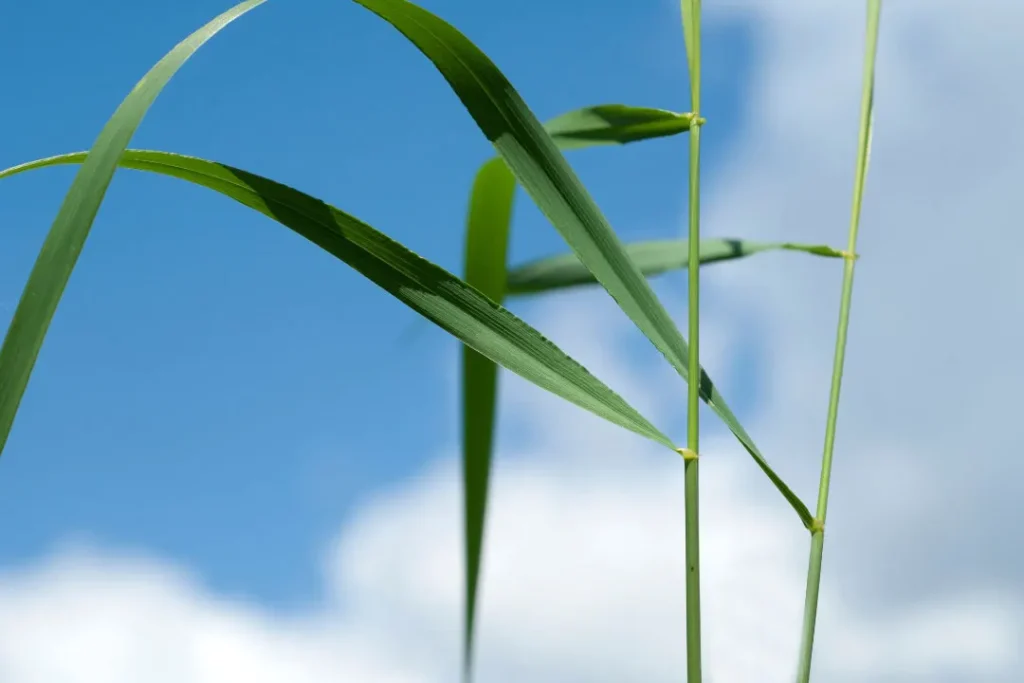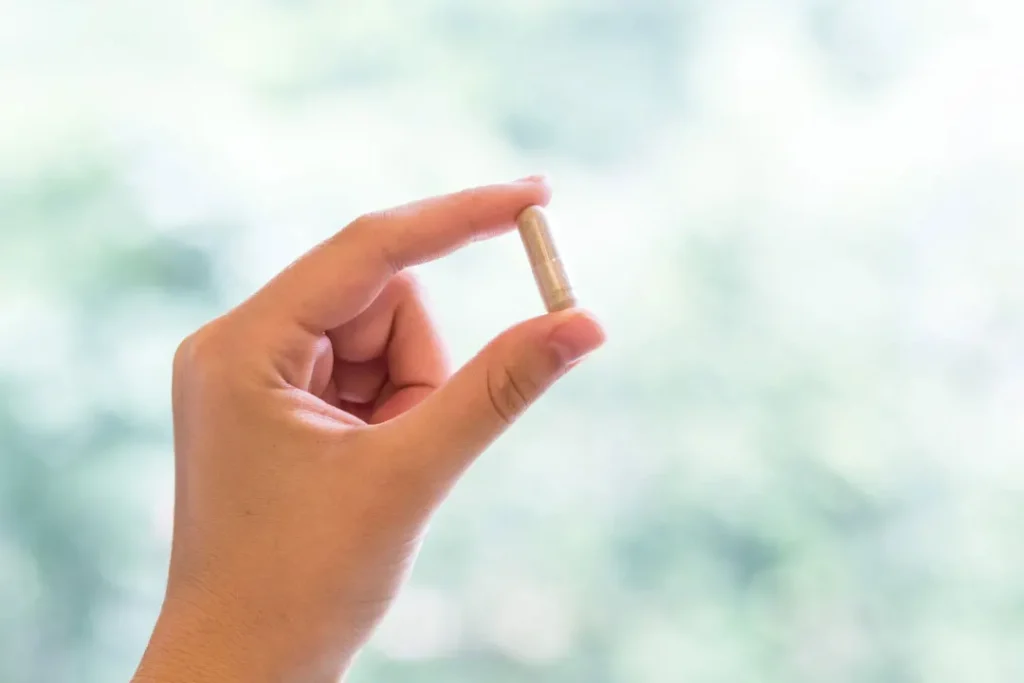Due to its invasive nature, couch grass, formally known as elymus repens, is a common perennial grass that is frequently considered a nuisance in gardens and crop fields. Though couch grass is sometimes thought of as a weed, it has significant medicinal benefits. Several components of the plant, especially the rhizome, are used in traditional medical practices all over the world. This article offers a thorough examination of couch grass as a dietary supplement, concentrating on its health advantages, ideal dose, potential side effects, and drug interactions. It explores couch grass’ chemical makeup and the physiological processes of its healthful impacts on the body and brain.
You May Also Like:
Colloidal Silver: Benefits, Dosage, Side Effects, Drug Interactions, and Other Important Information
Nature of Couch Grass
Couch grass is often referred to as quackgrass, twitch grass, or dog grass, and it is found on most continents. Usually, the rhizome of this plant—its subterranean stem—is used for therapeutic purposes. It is known for having a high fiber content and many physiologically active substances, including volatile oils, polysaccharides, flavonoids, and phenolic acids[1].
Health Benefits of Couch Grass
Couch grass‘ medicinal efficacy derives from its diverse chemical composition, which provides several health advantages.
In conventional medicine, couch grass has long been used as a diuretic. Its rhizomes include polysaccharides and flavonoids that can improve kidney function by boosting urine output and aiding in the removal of waste from the body[2].
Anti-inflammatory and Antimicrobial Effects
Couch grass’ phenolic acids and volatile oil components have anti-inflammatory and antibacterial effects[3]. It is beneficial in treating urogenital tract infections and other inflammatory disorders because of these characteristics.

Chemistry of Couch Grass
The unique and complicated chemical makeup of couch grass is primarily responsible for its health-promoting effects. Polysaccharides, volatile oils, flavonoids, and phenolic acids are some of its major components[1].
Complex carbohydrates known as polysaccharides have numerous health advantages, including immune-modulation and t healthy digestive system support[8, 9]. Couch grass’ volatile oils, which are frequently high in terpenes and contribute to its scent, have antibacterial and anti-inflammatory properties[9].
aAclass of plant metabolites known as flavonoids is hypothesized to have positive impacts on health via antioxidant effects and cell signaling pathways[10]. According to research, phenolic acids, such as ferulic, p-coumaric, and caffeic acids, have strong antioxidant, anti-inflammatory, and antibacterial properties[11].
Physiological Properties of Couch Grass
The physiological properties of couch grass’s chemical components are responsible for its health advantages.
Its diuretic qualities attribute to the polysaccharides, and help stimulate urine output, which makes it easier to get rid of waste from the body[2]. This exercise has the potential to enhance kidney health and help with the treatment of illnesses including kidney stones and UTI’s.
Couch grass’s volatile oils and phenolic acids have antibacterial and anti-inflammatory properties that prevent the development of pathogenic germs and control inflammatory reactions in the body[3]. Couch grass can help treat diseases brought on by microbial infections and inflammation because of these qualities.
Couch grass’ medicinal properties are highlighted by the biological actions linked to its chemical components. To understand these properties completely and to support the traditional applications of couch grass in various health problems, further scientific research is required.
Optimal Dosage
The best amount of couch grass to take relies significantly on your health and the illness being treated. Adults are often advised to consume 1-2 tablespoons of the dried rhizome soaked in hot water three times daily[4].

Side Effects
Couch grass can have some side effects even though it is often thought to be safe for most people to consume in moderation. These include moderate stomach discomfort, especially in those who are using it for the first time or consuming it in high amounts[5].
Potential Substance Interactions
Couch grass is usually harmless and doesn’t have any known drug interactions. It can, however, interact with other diuretic medications or substances due to its diuretic properties, which can cause excessive urination or electrolyte imbalances[6].
To guarantee its safe and efficient usage, if you intend to start utilizing couch grass as a nutritional supplement, you should speak with your healthcare professional. It is especially important if you are using other drugs, if you are expecting or are a nursing mother, or have pre-existing medical issues.
Responsible Use Practices
To use couch grass as a nutritional supplement safely, several guidelines must be followed. It is advised to speak with your healthcare professional before using this supplement in your health regimen, especially if you have any pre-existing diseases, are pregnant or nursing, and or are on other drugs.
Like with any nutritional supplement, you need to closely follow the dose instructions. Although most people find couch grass to be harmless, consuming too much of it can have unfavorable effects. The typical daily dosage that is suggested most often is 1-2 teaspoons of the dried rhizome soaked in hot water, three times a day[4]. Variations can happen depending on your health requirements and the criteria for a certain product.
To guarantee the supplement’s security, excellence, and effectiveness, it is crucial to get your couch grass supplements from reliable suppliers. It is also important to keep track of how your body is responding to the supplement. Any unanticipated or unfavorable effects should be reported right away to your healthcare professional.

Couch Grass: Conclusion
Supplements made from couch grass should only be used in conjunction with a healthy diet and any prescription medications. Couch grass has been proven to have a substantial positive impact on general health and wellbeing when you use it properly. However, further study is necessary to fully understand its potential benefits. Couch grass should be used properly and under your doctor’s supervision. If you are interested in taking a natural supplement to aid in anti-inflammatory health, or dieuretic health, couch grass is the perfect one to start with.
References:
- “Anti-inflammatory and antioxidant properties of Elymus repens (L.) Gould (couch grass).” Retrieved from: https://www.ncbi.nlm.nih.gov/pmc/articles/PMC6691157/
- “Couch grass.” Retrieved from: https://www.webmd.com/vitamins/ai/ingredientmono-1490/couch-grass
- “Diuretic Activity of Some Species of Elymus L. Grass.” Retrieved from: https://www.researchgate.net/publication/260371742_Diuretic_Activity_of_Some_Species_of_Elymus_L_Grass
Important Note: The information contained in this article is for general informational purposes only, and should not be construed as health or medical advice, nor is it intended to diagnose, prevent, treat, or cure any disease or health condition. Before embarking on any diet, fitness regimen, or program of nutritional supplementation, it is advisable to consult your healthcare professional in order to determine its safety and probable efficacy in terms of your individual state of health.
Regarding Nutritional Supplements Or Other Non-Prescription Health Products: If any nutritional supplements or other non-prescription health products are mentioned in the foregoing article, any claims or statements made about them have not been evaluated by the U.S. Food and Drug Administration, and such nutritional supplements or other health products are not intended to diagnose, treat, cure, or prevent any disease.


